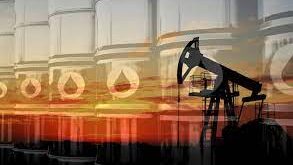Iraq is still waiting for Iran to resume supplying the country with sufficient amounts of gas for power generation, after the US granted Baghdad a 90-day waiver to continue to import electricity from Tehran on Dec. 30.
“The reason for power shortages in provinces is the continuing slashing of Iranian gas supplied to power stations,” Ahmed Musa, spokesman for Iraq’s electricity ministry told state-owned Iraqi News Agency Jan. 5.
Iranian energy minister Reza Ardakanian, who visited Iraq Dec. 29, pledged to resume slashed gas supplies, according to a statement from Iraqi Prime Minister Mustafa al-Kadhimi that was carried by INA. Cash-strapped Iraq owes Iran billions of dollars in unpaid bills for gas imports, which are needed to avert power shortages in OPEC’s second largest producer. Iran has lowered supply from 50 million cu m/day to 5 million cu m/day, according to Iraqi officials.
Iraq’s inability to pay its bills comes as the US granted Baghdad on Dec. 30 a 90-day waiver to keep importing Iranian energy. The current waiver follows the 45-day waiver that was granted Nov. 20. Since 2018, Iraq has received waivers from Washington to import energy products from Iran, which is subjection to US sanctions.
Expensive imports
“We believe that it is possible within the 90 days for the government of Iraq to take meaningful actions to promote energy self-sufficiency and reduce its dependence on expensive Iranian energy,” a spokesperson for the US Department of State said in a statement to S&P Global Platts Jan. 6. “The Secretary [of State] has determined it is in US national security interests to renew the waiver. We are not in a position to preview any future decisions about whether to renew the waiver. ”
Under US pressure to wean itself off Iranian energy imports, Iraq has pledged to take a number of actions to boost gas and electricity supply in the country. However, the pace of action has been slow amid the country’s financial crisis sparked by the pandemic, low oil prices and political uncertainty.
Iraq plans to capture associated gas that is mostly burned, with the country branded the world’s second worst gas flaring nation after Russia in 2019, according to a World Bank report.
Most of Iraq’s gas production is associated with oil production, which is subject to OPEC+ quota restrictions.
Although Iraq failed for most of 2020 to adhere to its OPEC+ quota, its gas supply was still insufficient to cover its power needs.
Iraq also has plans to import electricity from Saudi Arabia, the six-member Gulf Cooperation Council, Turkey and Jordan to help plug power shortages, which in the past have led to deadly protests.

 Iran Energy News Oil, Gas, Petrochemical and Energy Field Specialized Channel
Iran Energy News Oil, Gas, Petrochemical and Energy Field Specialized Channel



